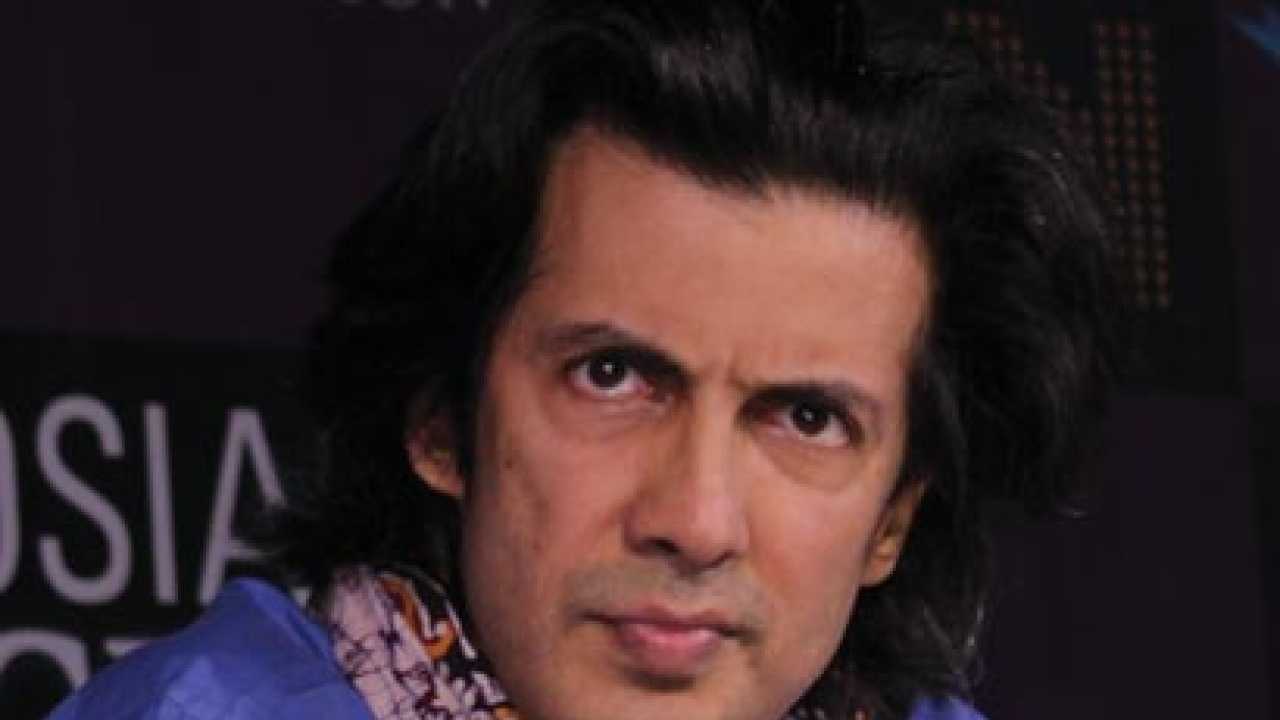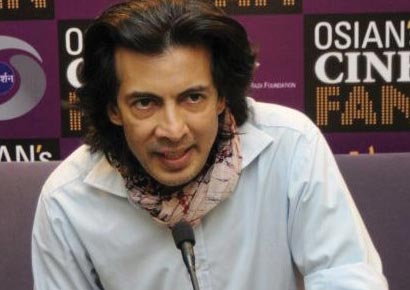
Osian’s Cinefan director Neville Tuli is excited as 20 years of labour finally bears fruit in an online database on 5,000 years of Indian art, culture and cinema. DNA caught up with the film-maker whose passion for cinema has ensured the ready-for-launch database has a comprehensive cinema section. Excerpts of an interview by Yogesh Pawar:
Two decades of research and you're ready for the release of a first-of-its-kind comprehensive database. What has the journey been like?
I've always had a single-point agenda, even though it spreads in many forms in the eyes of the public and that was to bring the latest knowledge base for Indian art, culture and cinema at the heart of the country's developmental framework and to build it from scratch. Its been 20 years and in less than a few weeks we will for the first time be sharing hopefully what'll be one the world's greatest knowledge bases that tries to unite 5,000 years of Indian culture, cinema, art and literature.
Its important that India gets that confidence to see herself as a whole,not as fragments. That she sees herself in the fine arts, architectures, cinemas, the popular culture, political histories, photography and print-making. All these worlds are actually in a way part of the same whole. Currently anybody who wants to study India finds it difficult to source material. One has to go through various sources and the quality and nature of the information is often poor. This is what we have sought to build.
Whether its star-heavy Bollywood or other popular art Indians rarely move beyond mass appeal and the popular. Do you feel things are changing?
As you understand the culture and value system of the country, especially one which is linked to the masses, its seems worrying that the common denominator is so low. Its particularly sad this is not for any reason of intelligence
In a country of 500 million, why can't we still stand in front of a painting and have a dialogue with it? It is because average person's day is just so occupied in survival, that there's no energy for anything else. This means imbibing of culture, aesthetics and creativity and anything that requires thought to go with the emotional instinct is something that we don't nurture. Escapist cinema or entertainment is then what becomes the assumed need.
The Indian body is so physically weak that it affects both the employment structure and the creative one. As a result, culture has failed to understand the infrastructure you require to tackle this in 65 years of Independence.
But hasn't technology which has grown by leaps filling that space?
Technology has happened despite the system not because of it. Global interactions have increased. This has added new dimensions. The global world has new standards, they require a different level of infrastructure to build in. Obviously their journey is fundamentally different. Even though India is 100 years in its cinematic history, we have been forced to keep pace.
Hasn't audience taste changed too? Many independent films for example have become run away hits and enjoy cult following apart from attracting crowds?
That has happened because of two basic reasons: film festivals and the multiplex. In fact the latter has swung to the other extreme now and is seen as an enemy of independent cinema because of steep ticket prices.
Not many give credit to the first IFFI but they've been doing their job for the past 50 years, creating a culture, then there's our own Osian's Cinefan Film Festival. There's one in Kolkata, another in Bangalore. All these great young directors started off at festivals like these. You need more of these platforms regularly, not just once in 5-6 months.
Have film makers too started finding the right balance between heart and head finally?
Its not that film-makers are suddenly more creative or wiser than 30 years ago, its just that they are given more platforms where they can be encouraged more and take more risks and have interaction with global communities. and understand what's happening in the Arab world, the Latin world, what's happening in America, and Africa that fusion, and that assimilation is what brings out creativity. We're still not doing earth-shattering stuff which will changed the value system.
Whether its Anurag Basu or Vishal Bharadwaj most Indie film makers began on a different note but once successful, they are averse to risks and pile on mainstream elements till it seems like a compromise. Do you agree?
Everyone has a certain journey to progress. Its playing with uncertainty. A creative mind has one relationship only, how do I deal with the uncertain. A gambler loves the process, s/he is not concerned with the results. They need certain successes during a period, but they can sustain their journey. So as long as you keep alive that ability and desire to experiment, to gamble, to build forward your own inner vision, its not a compromise.
The moment the relationship with the uncertain changes, and you now start enjoying answers,you start enjoying stability, you start enjoying that feeling that if I stay here I will get greater happiness and/or success, then obviously there's a stagnancy and repetition. Before long one falls into what becomes an orthodoxy or the institutional framework for the establishment.
In a way, its essential that every human being in every 10 years or so goes through some humiliation and crisis just to wake up and realise that life is so short. It will keep alive the urge to re-experiment, rediscover and rebuild. What am I leaving behind that others can use better than I did is not unfortunately not the larger ethos of India. Again you have to blame the lack of infrastructure and the far too many fire-fighting issues around.
You've spoken about how portrayal of women in cinema resonates with the way women are treated in society. In light of the national outrage after the recent savagery in Delhi, do you see this changing?
Everything that we see in cinema is a portrayal of reality. None of us wished for that reality because the collective reality will always be far more compromised, more mediocre, less idealistic and more rooted in small pettiness than what we aspire to in our lives.
The question is how does that effect our belief in the system? Does that inspire us to be more idealistic or does that inspire us to be more practical? In a negative sense. the portrayal of men, women, animals, police, or politicians all of these things have always been deeply compromised. The journey of the woman obviously has been more fractious given the inherent chauvinism. This itself is linked closely to the socio-economic and socio-political narrative.
Thus you have to tackle these issues as a whole freed from the many regionalised, communalised and local issues. While it is truly tragic that a young girl died in Delhi after such a gruesome attack, this is not an isolated trigger. Unfortunately these triggers get absorbed and forgotten.

What do you think of movies like Ishqazade which glorify rape? Isn't it time we put an end to such crassness?
Creative thought should have absolute freedom to depict anything with no lines to be drawn in creativity. It is the responsibility of society to deepen its mind to understand problems as a whole... to understand aesthetic sensibility, imagination, reality and what you can control as a human being.
It is not for the creative mind to start pandering and creating forms which they think will be popular. The role of the artist is and always must be to create and to provoke some sort of deeper thinking in the human psyche.
The media or the political system too shouldn't draw any lines on creative freedom. It is the system which gets elected which has the responsibility to put in place the infrastructure to protect freedoms.
But the argument is that people want to emulate what they see on screens.
You think that if we start showing films on Swami Vivekananda and Gandhi the world will become Gandhi's and Vivekananda's? It doesn't happen like that .
The creative world is merely one facet of the human psyche. There are thousand of forces that are affecting us. This is a mediocre mumbo jumbo argument. It is fed to the masses to keep power in a mediocre framework where you can control it systematically.
As the largest democracy, we more than any civilisation in the world have to uphold that.
Your thoughts on Bollywood's 100-crore club.
These are just bench marks... and rather temporary ones at that. There is a very easy way to tackle this. The world's always trying to find a marriage between Saraswati and Lakshmi, even though it doesn't happen easily. Saraswati and Lakshmi are never together in 5,000 years of civilization. Its easy to put tangible indicators on Lakshmi, its far harder to do so for Saraswati. Unless you tackle the benchmarks. by which wealthy economy materialism moves forward we can't create the atmosphere for Saraswati to flourish for knowledge to flourish.
These are passing fads created by the media, the industry and society. They serve their purpose for the moment and then they will pass on.
What do you make of the fact that many crossover movies are finding their mark with both critics and masses?
About time. See, for every crossover, one weakness that you will have, one value system that you deeply understand and another value system that you are flirting with... There'll be an inherent bias or lack of balance, just like in a human being who wants to be a master of many subjects.
The movement towards a universal global perspective where 10-15 years from now, it won't matter which country of the world we are producing films in. It will be about human stories, about the interaction of all things on earth and perhaps (laughs) we may have discovered other planets where there may be life. and suddenly it won't be about earth alone.
Some film-makers have said we shouldn't even bother about the Oscars?
Its very easy to denigrate great institutions .The Oscars have stood the test of time and the greatest creative minds of the world have been part of that. Why criticise that? Build an alternative if you want to but why bring things down? Respect what is already built by others, support it ! Make it even stronger. Where is the question of criticising it.
If the matter of choosing films is inefficient or biased discuss those issues. Otherwise it doesn't make sense to say good or bad. One of the great weaknesses of the system is the insecure envy for what others create. Its a herd mentality to just break something down, without understanding what it is and India can't afford that .
Have you watched Dabbang 2?
I haven't had time to watch Dabbang 2. But I loved the song in Dabbang where Salman has this lovely thing on his sunglasses.